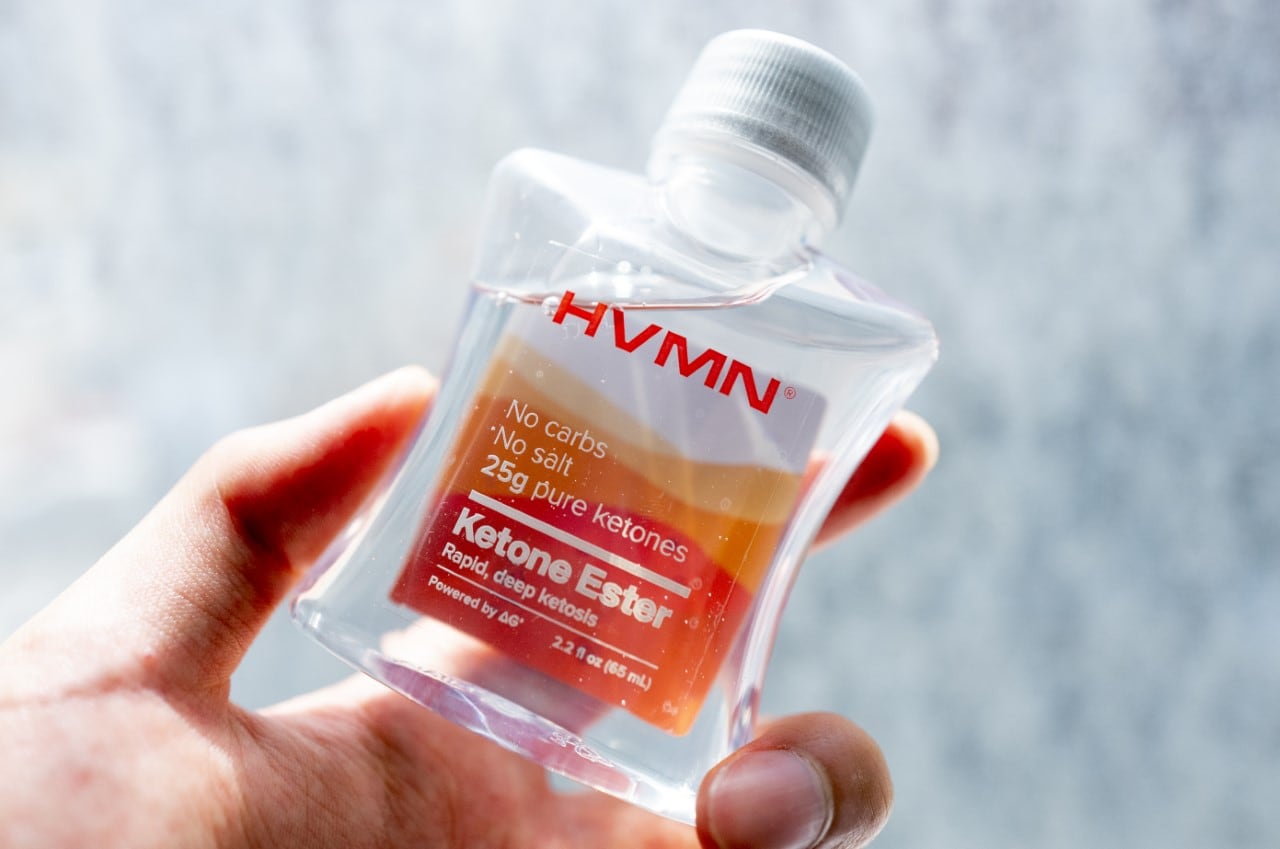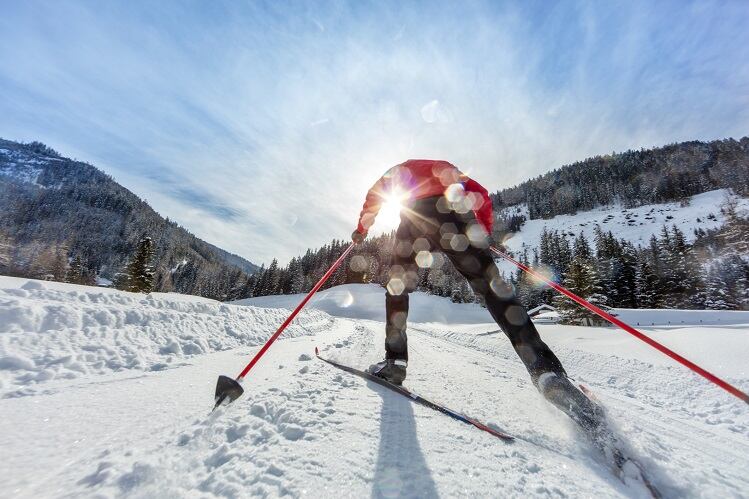While reticent to name the pro teams in question the two biggest ketone ester players – HVMN and KetoneAid – told NutraIngredients they were each supplying their wares to multiple teams and benefitting from a surge in press coverage.
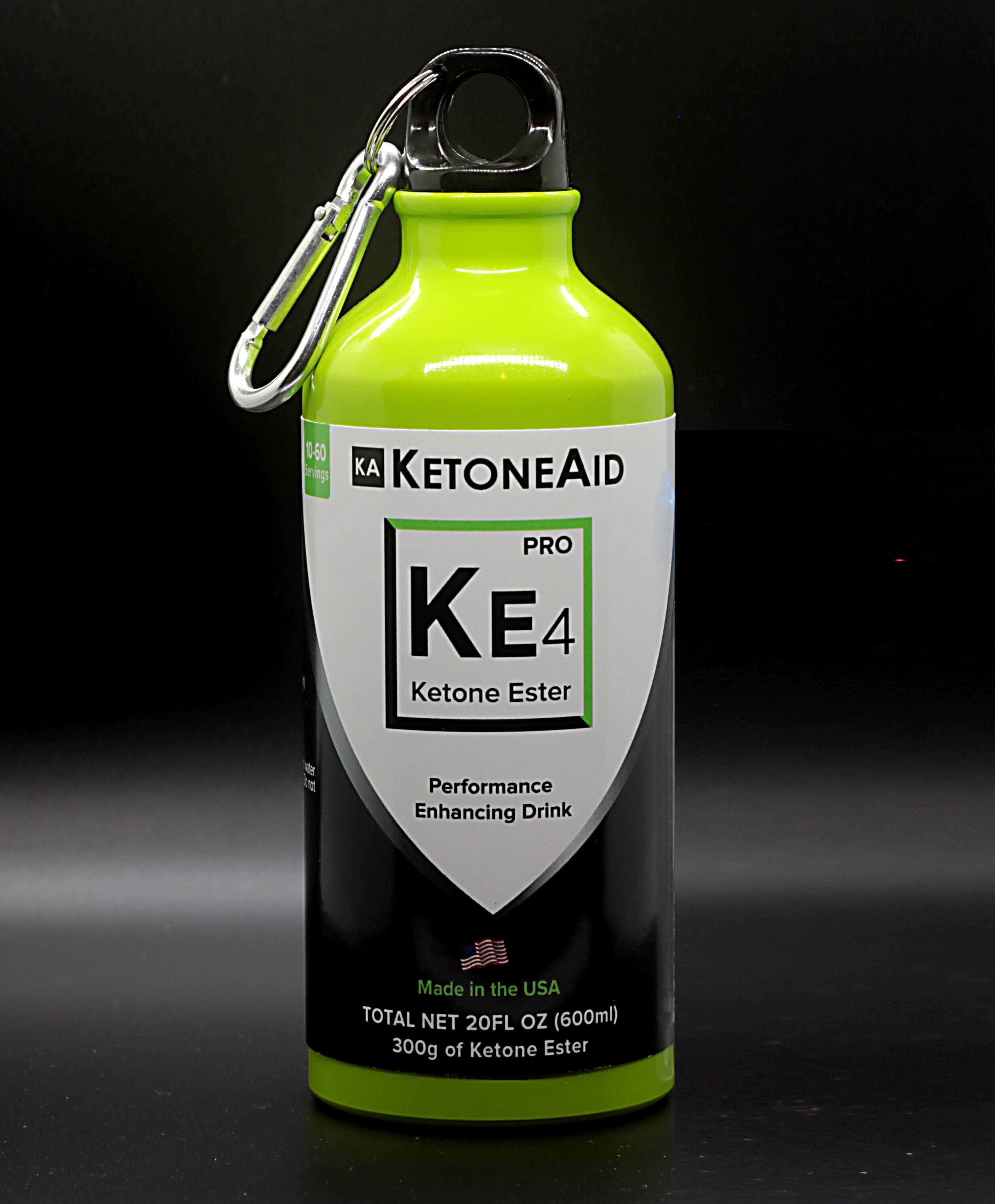
HVMN CEO Geoffrey Woo said “up to half” of the Tour de France peloton’s 22 teams use HVMN, although he said it was difficult to be precise because some were purchased through third parties while others went through coaches and individual riders. A 120-bottle carton of HVMN costs $3600 (€3235).
KetoneAid owner Frank Llosa told us his firm sold thousands of bottles to one team and served many others. He said teams and individuals often purchased products through third parties based in the US and then had them couriered to Europe or elsewhere as KetoneAid and HVMN can only legally ship within the US.
Llosa last week offered free ketones to any Tour de France teams that wanted them.
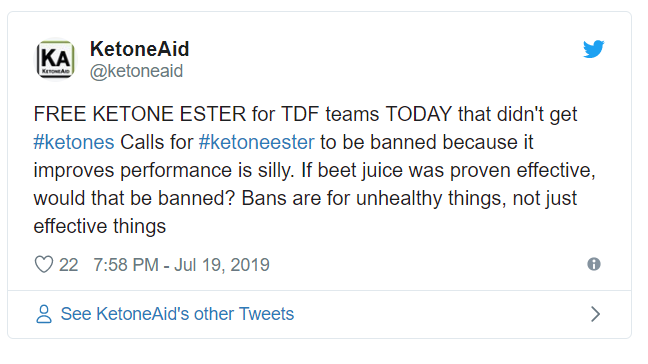
Some animal and human research indicates exogenous ketone supplementation can promote efficient fat burning in stressed situations, while preserving glycogen stores, yielding potential performance and recovery gains.
Exogenous ketone esters are usually extracted from a source like corn.
Ketone esters are not banned by the World Anti-Doping Agency (WADA) but their situation is a little curious in that they are only approved for sale in one country – the US – where HVMN and KetoneAid are based.
HVMN’s UK-based ketone ester supplier, TDeltaS, lodged an EU Novel Foods application several years ago, and recently updated its dossier with additional safety data, said CEO Kieran Clarke, Professor of Physiological Biochemistry in the Department of Physiology, Anatomy and Genetics at Oxford University. But until that is processed by the European Food Safety Authority (EFSA) ketone esters are not permitted for sale across the EU’s 28 member states.
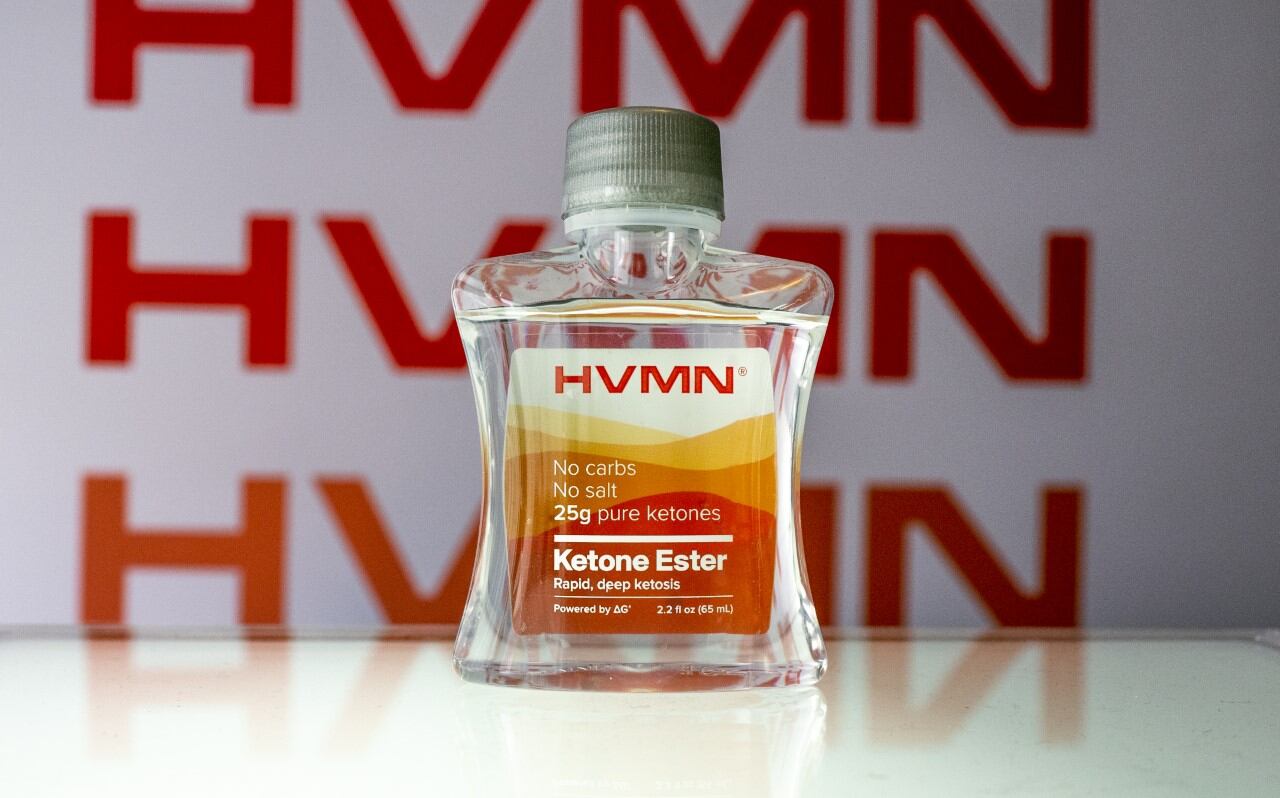
In this climate enthusiasts are met by those calling for more research, while others want ketones kicked from the pro peloton completely.
Pieces of the performance puzzle
Dutch team Jumbo-Visma, having a stellar Tour de France with four stage victories, is one of the only outfits to publicly confess their fondness for ketones, a far cry from previous years where their use was very much hush-hush. But there were no ketone ester products on-market then.
"Ketones are a dietary supplement. You can use them just like vitamins. The substance is not on the prohibited list, and it's also known that other teams use ketones," team manager Richard Plugge told the Dutch newspaper De Telegraaf.
Professor Peter Hespel, head of the exercise physiology research group at Catholic University of Leuven in Belgium said ketone ester drinks were "probably a piece of the puzzle" in the success of Belgian team Deceuninck-Quick-Step.
A recent study in the Journal of Physiology from Professor Hespel found trained athletes could take 15% more workload with exogenous ketone ester supplementation.
Sports Nutrition Summit
The Sports Nutrition Summit, brought to you by NutraIngredients is back for a second year!
Bringing together industry and research professionals in the active and performance nutrition space, the Sports Nutrition Summit aims to bridge the gaps between cutting edge science, business strategy and key regulatory developments to shine a light on the key consumers in the sports and active nutrition industry, and what you can do to meet their needs.
Challenging you to know your market the 2019 programme will explore the latest scientific and product developments across the consumer spectrum - looking at active sports nutrition consumers by category, life stage and by geography.
Ketone critics
Not everyone is drinking the ketone kool-aid though. German team Sunweb and two French teams, Arkea-Samsic and Cofidis, want to see more safety data.
"At first it cost thousands of euros for one bottle, but now you can get a bottle on the internet for between 30 euros and 90 euros," French team Arkea-Samsic team doctor, Jean Jacques Menuet told AFP. "But I don't want to receive a letter in 10 years from a rider telling me that his liver is ruined.”
Vincent Lavenu, the team manager at another French team, AG2R La Mondiale, called for a ban for the sake of “equality”.
Cycling’s global governing body, the Union Cycliste International (UCI), said it followed the WADA code, but would monitor ketone use in the cycling world.
Taste, price, demographics
Pricing and taste remain issues for ketone esters. They are expensive and have an intensely bitter taste (I tried one, yike).
HVMN boss Woo calls it a “stiff cocktail” and said the company was working around the clock to tweak the formulation. A 65ml bottle of HVMN containing 25 grams of 'pure ketones' costs about $33 from the company’s website.
He added that although the product has been on-market for about 18 months it doesn’t sell in brick retail outlets yet, as it awaits a broader GRAS (Generally Regarded as Safe) approval for the general population as opposed to athletes.
“Selling in mainstream outlets like supermarkets and pharmacies is our goal,” he said. “We expect people will be choosing ketone drinks over cola in five years.”
Woo told us there were three fundamental demographics buying HVMN: professional and serious athletes; body toners; health and wellness adherents.
“The cognitive and health and wellness area may be the most interesting,” he said, referencing emerging research showing nootropic effects.
“The sports business is quite spikey due to seasons. Our largest demographic is definitely in the cognitive area.”
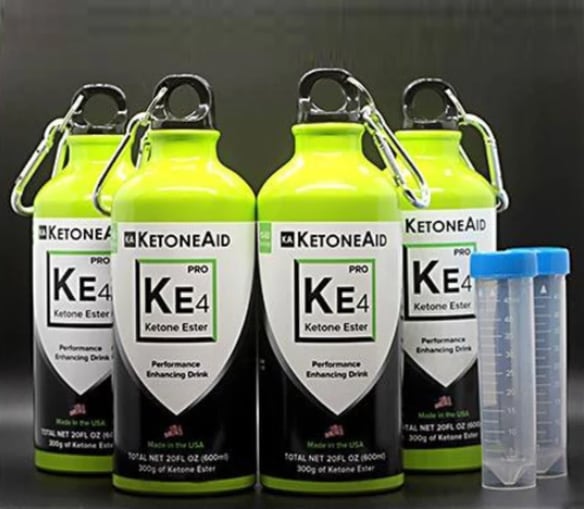
TDeltaS CEO Kieran Clarke told us price could halve once production is scaled up at the pharma facility it employs – expected next year.
KetoneAid and HVMN said some users reduce cost by microdosing.
Research indicates a 65ml bottle can elevate bodily ketones for 4-6 hours.

